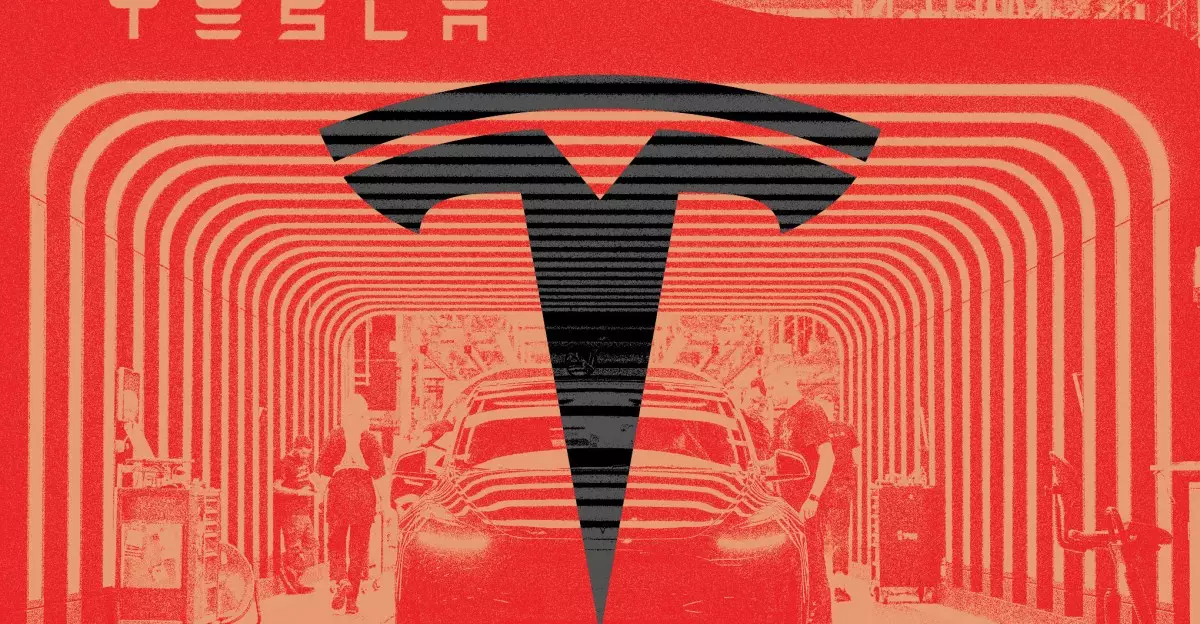Tesla’s sales in Europe have taken a hit of nearly 50 percent, raising significant red flags about the company’s future in a critical market. Despite an overall boom in electric vehicle (EV) sales across the continent, with a reported 26.4 percent increase in battery-electric cars, Tesla has found itself trailing dramatically. The figure of just 7,261 new vehicle registrations in April 2025 marks a stark contrast to its performance a year earlier and prompts questions about the brand’s strategic direction. An analysis of these numbers indicates that the EV giant’s decline is not merely an anomaly but indicative of deeper systemic issues.
Competition Heating Up
The automotive landscape in Europe is continually evolving, with domestic manufacturers and aggressive Chinese competitors advancing rapidly into Tesla’s territory. Brands that were once hesitant to tread onto the electric scene are leveraging advanced technology and competitive pricing to capture market segments. Additionally, traditional automakers are investing heavily in electric frameworks, causing consumers to have a wide variety of options beyond Tesla. The lack of innovation in Tesla’s product offerings may be playing a crucial role in deterring potential buyers. While the launch of a refreshed Model Y might have generated initial excitement, the anticipated influx of customers did not materialize, raising questions about Tesla’s adaptability in a fast-paced environment.
The Perils of Political Entanglement
CEO Elon Musk’s frequent political involvements have created a complicated narrative for Tesla. Particularly detrimental was his endorsement of Germany’s far-right party ahead of a major election—a move that may have alienated a segment of environmentally-conscious buyers in Europe. Consumer preferences are sensitive to a company’s ethical and political stance, especially in a region like the EU, where a proactive approach to sustainability is paramount among consumers. To compound matters, Musk attempted to assure investors that his political distractions would dwindle in light of pressing corporate needs. However, the clarity of his focus remains questionable when contrasting his visions of the company with outward distractions.
Public Sentiment and Brand Reputation
In a striking transformation, recent polls reveal that public sentiment towards Musk himself has shifted markedly. A notable 58 percent of respondents in a Reuters/Ipsos survey expressed an unfavorable view of him. This perception inevitably filters down to Tesla, where brand confidence appears to be dwindling. In a time when integrity and consumer rapport are paramount, Tesla is suffering from eroded trust, evidenced in a recent reputational survey that places Tesla far behind other industry players. Once ranked as one of the top companies, it now languishes in the depths of consumer preference rankings. The disconnect between Musk’s ambitious promises regarding sales recovery and the recognized decline suggests that his actions may be inadvertently damaging Tesla’s image.
The Road Ahead: Challenges and Opportunities
Tesla’s management, including Musk, must comprehend the urgent need to recalibrate their strategies. The focus on AI and robotics, while exciting, should not overshadow the basic tenets of maintaining a robust product lineup that resonates with consumers. The firm’s innovation cycle needs to be reinvigorated so that it doesn’t fall prey to complacency. Responding to consumer feedback, enhancing product features, and expanding customer engagement must take precedence if Tesla hopes to reclaim its throne in Europe.
One potential avenue lies in forming stronger partnerships or alliances within Europe as a means to bolster its local credibility. By aligning with regional sustainability initiatives or collaborating with local tech companies, Tesla could improve its favorability among European consumers. Such strategic alliances could also mitigate the risk of being engulfed by local manufacturers who are more adept at understanding and responding to consumer preferences.
Without a doubt, the current predicament also offers an opportunity for Tesla to reengineer its image, realign its corporate direction, and emerge stronger. The dual advantage of an expanding EV market and a growing consumer base for cleaner alternatives, if strategically harnessed, could pave the way for a remarkable turnaround.

